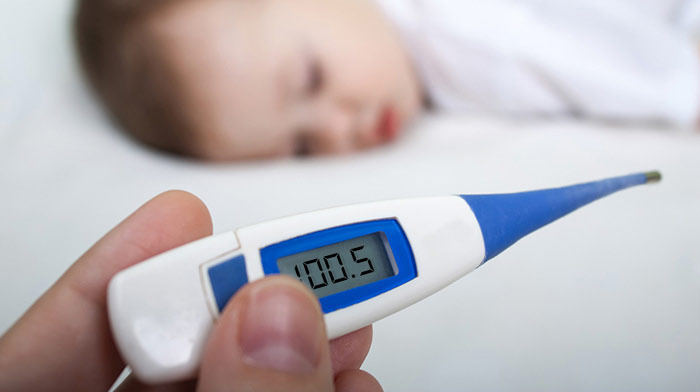
Fevers are one of the most common reasons parents seek medical care for their child. Most of the time, however, fevers require no treatment. That’s because a fever is the body’s normal, infection-fighting response to infection and in many cases is considered a good sign that the child’s body is trying to heal itself.
If I am able to convey the following information about the fever well, it’s going to ease the anxiety of most of parents at home currently.
When a child has a fever, he may feel warm, appear flushed or sweat more than normal—these are all common signs. So, when does a child’s fever need a paediatrician’s attention?
You should call your paediatrician immediately if the child has a fever and one or more of the following:
Managing symptoms - According to the American Academy of Paediatrics, a febrile child should receive symptomatic care, meaning that only the secondary discomfort that accompanies the fever should be treated. A sleeping child should not be woken up for treatment of a fever, and medication should be used to treat a fever only when the fever is causing the child discomfort.
While not all fevers need to be treated, there are things you can do to help older children feel more comfortable if need be:
You can give paracetamol or ibuprofen based on what your doc has recommended for your children’s age or weight group.
Additionally, infants younger than 2 months old should not be given any medicine for fever without being checked by a doctor. If your child has any medical problems, you should work with your doctor to determine which medicine is best to use.
Please give your child the appropriate fever reducer if he or she is uncomfortable, including before being seen in our clinic. The fever itself may be contributing to pain, rapid breathing, rapid heart rate, irritability, low energy and sleepiness so giving these medications will make your child feel better and more comfortable.
Ensure that your child should wear lightweight clothing and use a light sheet - overdressing can trap body heat and contribute to a higher temperature.
Children who are uncomfortable can also be helped by tepid water sponging along with medication. Please avoid sponging with cold water as it further adds to discomfort.
While they’re sick, it’s important for children to rest and drink extra fluids so they don’t become dehydrated. Water, soup, coconut water, ORS are all good choices. Avoid caffeinated beverages, however, as they are diuretics.
Couldn’t stop myself from sharing some fun activities to entertain your little one on a sick day which has helped me tremendously with my 3 year old:
Dear moms, if you have some more innovative ideas please share in the comments section. You can connect with me on FB messenger to discuss anything that bothers you about your child's fever.